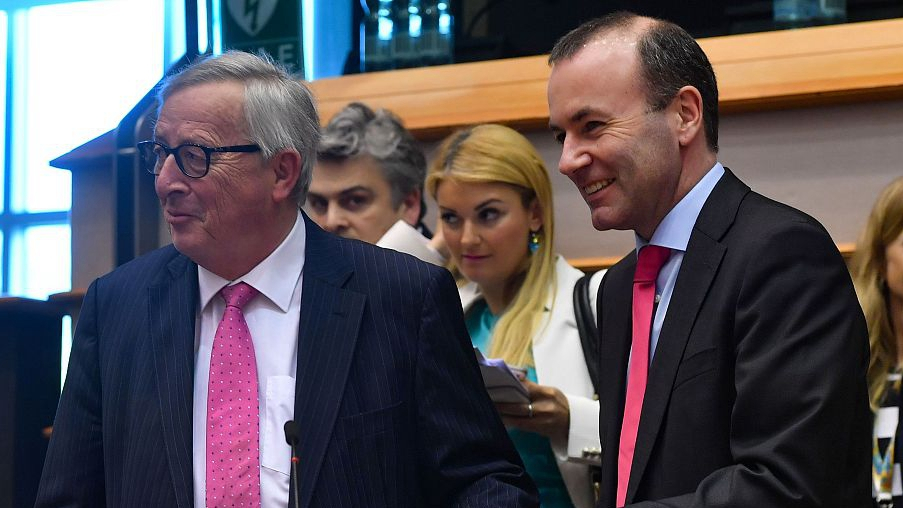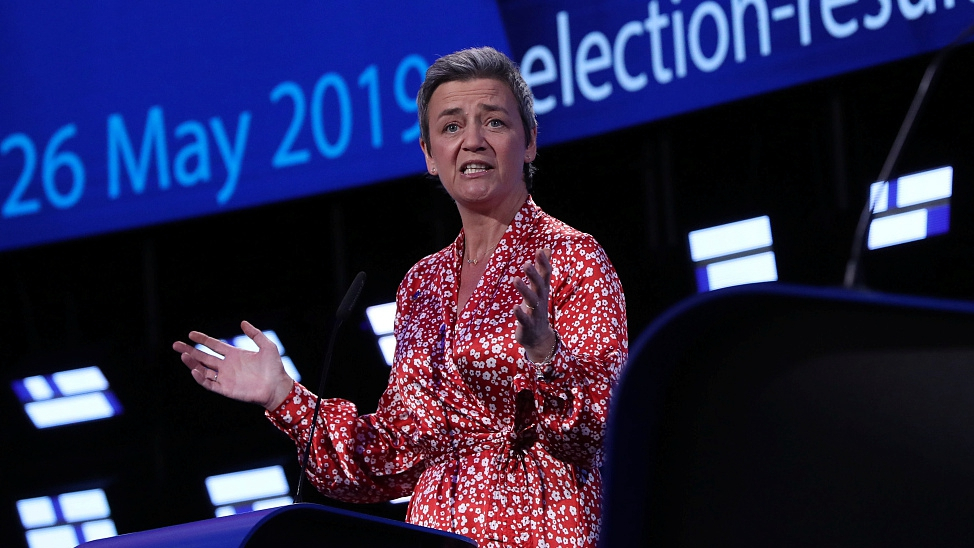

Horse-trading over the new leadership of the European Union recommences on Thursday and Friday with little sign of an imminent breakthrough.
Three weeks on from the last European Council summit, heads of government from all the bloc's member states will again meet in Brussels with the hope of ending a top job stalemate, but divisions – notably between France and Germany – remain.
Negotiations over the leadership posts, always complicated, are more complex this cycle because of the fragmentation of the vote in May's European Parliament elections: Four groupings – center-right, center-left, liberal, and Green – are expecting senior roles.
Macron-Merkel split
The top five jobs in the EU are up for grabs, and leaders are under pressure to strike a balance on gender and geography as well as between older and newer member states.
The heat of the battle is over the new European Commission president, the post that oversees member states' budgets and puts forward bloc-wide policies. French President Emmanuel Macron is opposed to the candidacy of Manuel Weber, the European People's Party figure backed by German Chancellor Angela Merkel, for the key role.
Weber, a longstanding German MEP, has been criticized for a lack of charisma, experience and poor French language skills.

European People's Party Chairman Manfred Weber (R) and European Commission President Jean-Claude Juncker at the European Parliament in Brussels, Belgium, April 3, 2019. /VCG Photo
At the last leaders' summit Macron laid out three potential candidates without mentioning the German, who leads the biggest party in the European Parliament and would be the frontrunner under the Spitzenkandidat process used to pick incumbent Commission president Jean-Claude Juncker.
Macron has namechecked Competition Commissioner Margrethe Vestager, Brexit negotiator Michel Barnier and the current Commission vice-president Frans Timmermans as viable options for a job that requires ratification from the European Parliament. World Bank chief executive Kristalina Georgieva's name has also been linked.
Vestager, the former Danish deputy prime minister who campaigned for the Liberal grouping in the EU elections, is increasingly seen as a possible compromise candidate. She has led the bloc's crackdown on big tech and corporate tax evasion over the past five years.
Officials told Bloomberg Vestager wouldn't be opposed by Macron or Merkel, and would address demands for gender and geographical mix in the bloc's leadership. However, if Merkel continues to back her compatriot Weber and Macron again resists, there's little chance of a quick resolution.
"An agreement between France and Germany is essential to unblock the situation, but Angela Merkel is not on a sure footing at home," a senior diplomat told AFP.

EU Competition Commissioner Margrethe Vestager in Brussels, Belgium, May 27, 2019. /VCG Photo
Narrow the options?
The split over the Commission president could mean the member state leaders focus on filling the roles of European Council president and European Central Bank president first.
The jobs don't require formal approval from the European Parliament, and given the expectations of the four groupings, deciding on one job could help unlock others.
Charles Michel and Mark Rutte, prime ministers of Belgium and the Netherlands respectively, have repeatedly been linked with the role of European Council president.
Whichever approach is taken, an emergency summit over the next two weeks looks likely.
The new European Parliament elects a president – Ska Keller, co-leader of the Greens, has been linked with the role – on July 2, and the European Council is expected to gather again immediately before or after in the hope of ending the stalemate.

Copyright © 2018 CGTN. Beijing ICP prepared NO.16065310-3
Copyright © 2018 CGTN. Beijing ICP prepared NO.16065310-3